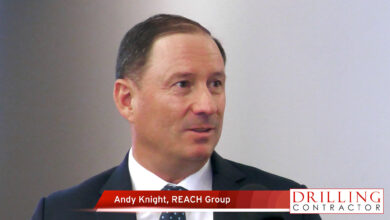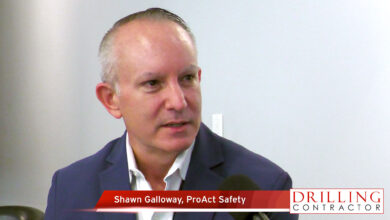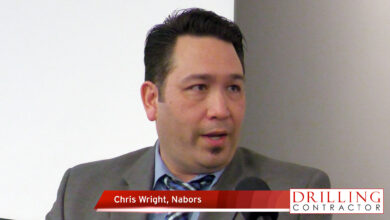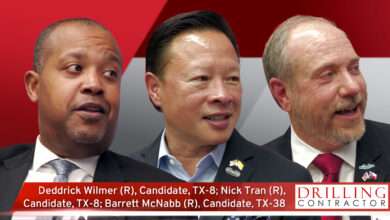Perspectives: Martyn Parker, Pruitt – Technical safety, working to industry’s recommended practices are both non-negotiable
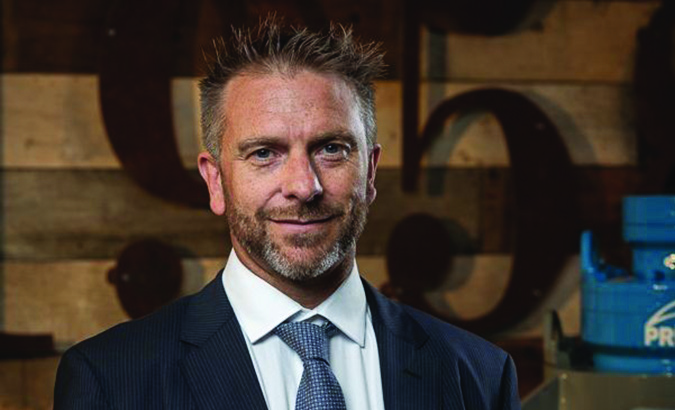
By Linda Hsieh, Editor & Publisher
While the oil and gas industry is often seen as the domain of engineers, it’s less recognized that there can also be ample opportunity for technically oriented people even if they don’t hold a university degree. Martyn Parker, who acknowledges that he didn’t excel academically because he found school learning to be “generic,” proves that you can build a strong oilfield career – and make an impact – as long as you are motivated and able to quickly learn on the job.
“I was the kid who couldn’t learn in school because most of what they taught didn’t interest me,” said Mr Parker, who currently serves as Vice President at Pruitt MPD Services. “But I always had a lot of curiosity about how things worked. And if I found something that I was interested in, I’m all in.” For example, he would earn A+ in physics, a subject he liked, but “fail in other areas miserably.”
In the late 1980s, after completing high school and short stints in the UK’s Royal Navy and as an offshore roustabout for Rowan Drilling, Mr Parker found himself working for Schlumberger in his hometown of Great Yarmouth. At the time, the town was still a busy service hub for the gas field of the Southern North Sea.
Although he was a maintenance technician, he put himself through offshore survival training, believing the certification would come in handy when the right opportunity came along. His instinct soon panned out, when he got the chance to go offshore with a well-testing team as a last-minute substitute. On-the-job, hands-on learning proved particularly effective for Mr Parker, and through his work with Schlumberger over the next 12 years, he soaked up vast amounts of technical knowledge around drilling and completions. It was also during this time that he was exposed to underbalanced drilling operations (UBO), which then led to opportunities over the next two decades managing projects for Shell, designing systems for Halliburton, and serving as a companyman for TAQA Energy.
By the early 2010s, Mr Parker had started thinking about starting his own MPD company. He had a business plan and conceptual designs for MPD equipment but knew he needed a partner. So he turned to Pruitt, a company that already manufactured high-pressure rotating heads but lacked specific MPD expertise. A meeting during an IADC conference in 2014 helped to advance the collaboration, which eventually resulted in Pruitt MPD Services.
However, by the time the company had built its first MPD package in 2016, the industry was in a full-blown downturn. Just as the company was in the final stages of readying its equipment for operations, Mr Parker even recalls having to turn down a contract because he realized the equipment was not yet ready to deploy.
“When I take on a job, I want to deliver success,” he said. “So we decided not to do it, even though industry was in a downturn and Pruitt had already invested a lot of money. But we knew that if we couldn’t do it right, we would rather not do it at all.”
While it would be six more months before Pruitt got another job, Mr Parker said he knows it was the right decision.
In the seven years since, Pruitt’s MPD Services department has grown from a handful of employees and one MPD package to 50+ employees and 17 MPD packages. Mr Parker attributes this success to how the company is managed, which aligns with Simon Sinek’s Golden Circle concept. “People don’t buy what you do; they buy why you do it” is an oft-cited statement from that 2009 Ted Talk. “I make every person who joins my team watch the Golden Circle,” Mr Parker said, adding “my ‘why’ is just to be recognized as a really high-quality service company providing MPD services.”
Once customers buy into this “why,” it’s up to the Pruitt team to find the “how” – which for Mr Parker means having “technically safe” equipment for his employees, as well as proper risk management processes in place.
Another key tenet of Pruitt’s “how” is to always work in accordance with the industry’s recommended practices (RPs) for MPD and UBO, no matter if they’re working on US land or in the Gulf of Mexico. The same practice of operating at or above industry standards is non-negotiable, Mr Parker said.
Too often, he added, he sees companies trying to apply MPD without first reading and understanding those industry RPs. Failure is a common result, which can put rig crews’ safety at risk.
To address this challenge, the IADC UBO & MPD Committee, which Mr Parker is chairing this year, has created guidance tools that are freely available on the IADC website. “You can lead the horse to water, but you can’t make it drink. I hope that companies will hear this message and make use of the tools that we’ve provided as a committee.” DC
Click here to access free IADC guidance for UBO and MPD techniques.

